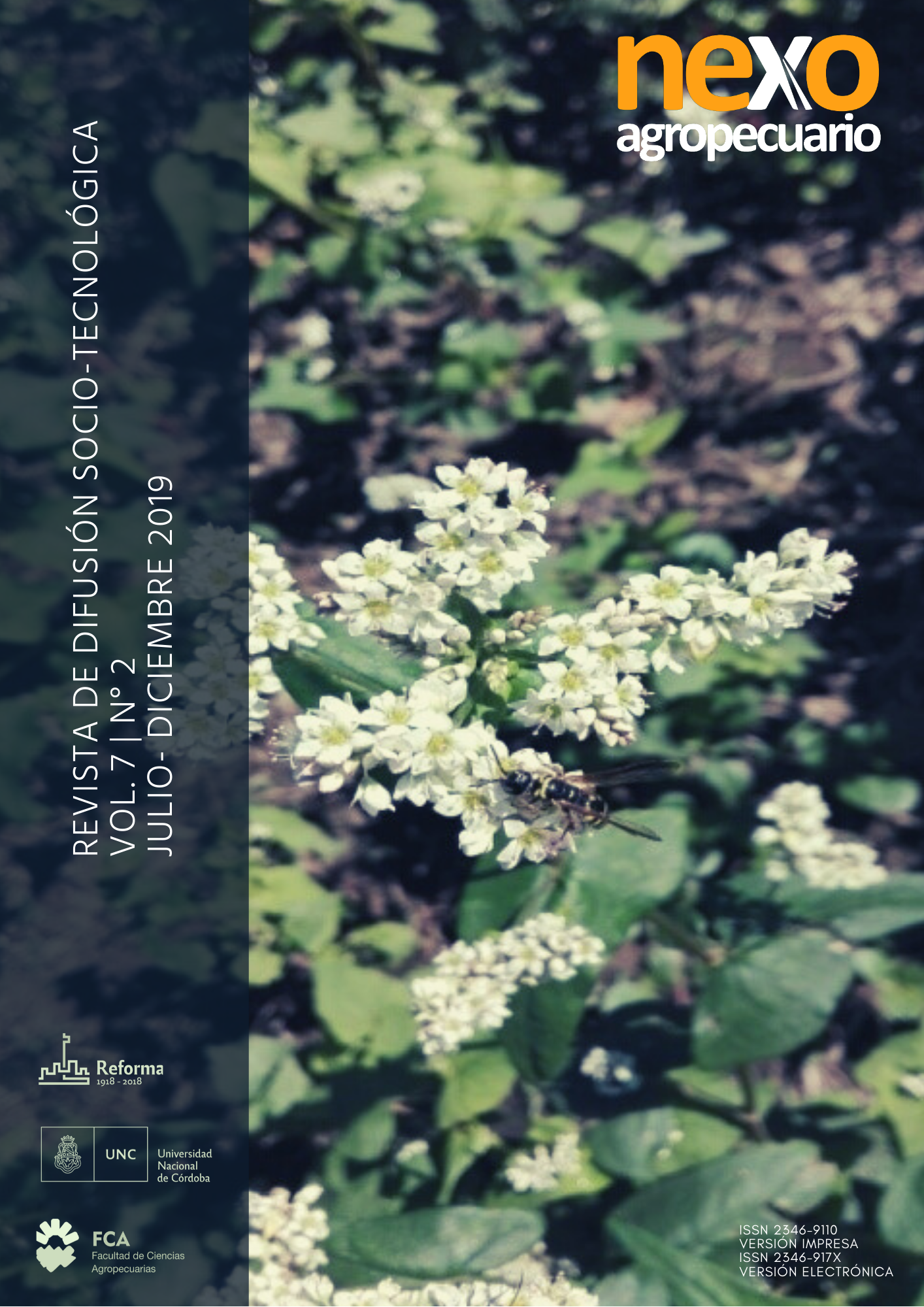Development of professional skills in agricultural engineering students at the Faculty of Agricultural Sciences, National University of Córdoba
Keywords:
problem-based learning, specific skills, transversal skills, milk productionAbstract
At the level of education in agricultural sciences, there is a need to develop specific and generic professional skills to meet the demands of the labor market. From the Professional Initiation Program of the Agricultural Engineering Career at the Faculty of Agricultural Sciences, National University of Córdoba (FCA, UNC), thirteen students (from 2nd to 5th year) joined a research project applied to milk production of the Chair of Animal Anatomy and Physiology (Department of Animal Production). The professional initiations took place at the Dairy School of the FCA, UNC during the months of May to November 2019, under the Tutorship of the Professor and Sub-coordinator of the mentioned subject. These initiations were implemented following the pedagogical model of problem-based learning (ABP), in order to promote the significant acquisition of knowledge through the resolution of real problem situations related to applied research and milk production, through the execution of different activities, such as adaptation of paddocks by installing feeders, drinkers and shade, moving the animals to the milking parlor, daily distribution of the ration for feeding the test cows, collection and processing of serial blood samples, collaboration with the veterinarian in the tasks of synchronization of oestrus and insemination of animals. The adoption of the ABP pedagogical method favoured the development of specific competences of the Agricultural Sciences related to milk production and generic ones, such as instrumental, interpersonal and systemic in the students. The acquisition of these competences will contribute to the integral formation of Agricultural Engineers that will allow them to adapt with greater flexibility to the demands of the labor market
References
Caraballo Carmona, C. M., Meléndez Ruiz, R., & Iglesias Triana, L. (2019). Reflexiones acerca del concepto competencias y aprendizaje por competencias en las instituciones de educación superior y su incidenciaen el aprendizaje de las matemáticas. Opuntia Brava, 11(1), 297-307. https://doi.org/.1037//0033-2909.I26.1.78
Fortea Bagán, M. Á. (2019). Metodologías didácticas para la enseñanza/aprendizaje de competencias. Unitat de Suport Educatiu de la Universitat Jaume I. https://doi.org/10.6035/MDU1
Gaona, C. (2019). Potenciar las competencias soft skills con presentación oral en el aula. En JIDDO – I Jornada de innovación en docencia universitaria para la dirección de organizaciones públicas y privadas (pp. 1-7). València: Editorial Universitat Politècnica de València. https://doi.org/10.4995/JIDDO2019.2019.10243
Luy-Montejo, C. (2019). El Aprendizaje Basado en Problemas (ABP) en el desarrollo de la inteligencia emocional de estudiantes universitarios. Propósitos y Representaciones, 7(2), 353-368. https://doi.org/10.20511/pyr2019.v7n2.288
Marra, R., Jonassen, D., Palmer, B., & Luft, S. (2014). Why Problem-Based Learning Works: Theoretical Foundations. Journal on Excellence in College Teaching, 25, 221-238.
Martínez Clares, P., & González Morga, N. (2019). El dominio de competencias transversales en Educación Superior en diferentes contextos formativos. Educação e Pesquisa, 45(0), 1-23. https://doi.org/10.1590/s1678-4634201945188436
Miller, G. E. (1990). The assessment of clinical skills/competence/performance. Academic Medicine, 65(9), S63-S67. https://doi.org/https://dx.doi.org/10.1097/00001888-199009000-00045
Plan de Estudio de la Carrera Ingeniería Agronómica, Facultad de Ciencias Agropecuarias, Universidad Nacional de Córdoba. (2004). Recuperado de http://www.agro.unc.edu.ar/~alumnos/wp-content/uploads/2016/09/plan_de_estudio_2004.pdf
Rodríguez Moreno, M. L. (2006). De la Evaluación a la Formación de Competencias Genéricas: Aproximación a un Modelo. Revista Brasileira de Orientação Profissional, 7(2), 33-48.
Savery, J. R. (2019). Comparative Pedagogical Models of Problem‐Based Learning. En M. Mahnaz, W. Hung, & N. Dabbagh (Eds.), The Wiley Handbook of Problem‐Based Learning (pp. 81-104). Wiley. https://doi.org/10.1002/9781119173243.ch4
Downloads
Published
Issue
Section
License
Copyright (c) 2020 C. Pen, E. Armand, T. Navarro, Z. Karki, L. Bravo, I. Anconetani, M. Marin Alcaraz, L. Schwarz

This work is licensed under a Creative Commons Attribution-NonCommercial-ShareAlike 4.0 International License.
Attribution - Non-Commercial - Share Alike (by-nc-sa): No commercial use of the original work or any derivative works is permitted, distribution of which must be under a license equal to that governing the original work.


